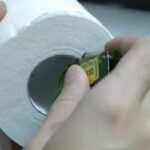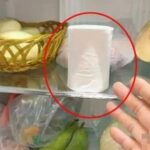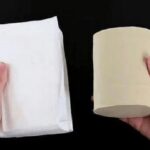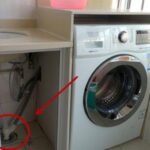In today’s fast-paced lifestyle, the bathroom plays a crucial role and directly impacts our quality of life and daily experiences. A seemingly simple question that is often overlooked is: “Should we flush toilet paper down the toilet?” In reality, this can be a cause of unpleasant odors and poor drainage in many households.
Today, we will delve into this issue in detail to dispel misunderstandings and help make your bathroom cleaner and more comfortable.
The “Unsoluble Bond” Between Toilet Paper and Toilets
Toilet paper is an essential product in our daily lives, designed for post-toilet use and disposable by flushing down the toilet, minimizing waste and environmental pollution.
However, many people worry that disposing of toilet paper in this manner may cause blockages. This leads to doubts about how to handle toilet paper, potentially creating unnecessary problems.
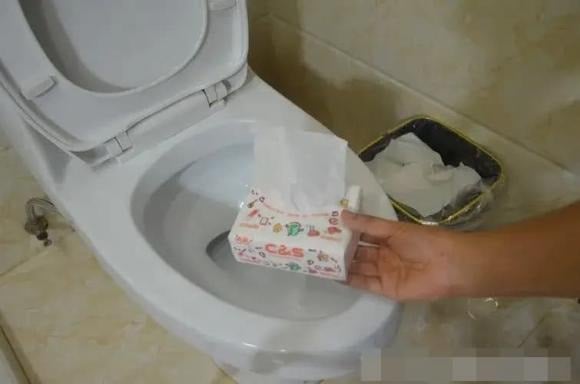
Toilet paper is designed for flushing, reducing waste and environmental impact.
The “Compatibility” of Toilet Paper and Toilets
Firstly, it’s important to note that not all types of paper can be flushed. In this context, we are referring to “toilet paper,” specifically designed for use in toilets.
Toilet paper is typically made from natural fibers and treated with a special process, allowing it to dissolve quickly in water without causing blockages. This type of paper is soft, absorbent, and easily biodegradable when flushed, ensuring efficient drainage without any hindrances.
Common Misconceptions About Toilet Paper and Toilets
Misconception 1: All Types of Paper Can Be Flushed
Many people believe that any kind of paper can be flushed down the toilet without issues. However, this is incorrect. While toilet paper is specially designed to readily disintegrate in water, other types of paper, such as wet wipes, facial tissues, and paper towels, often do not easily dissolve or decompose. These papers can accumulate in drainage pipes and cause blockages. Particularly, wet wipes, with their fibers and additives, significantly increase the risk of clogs.
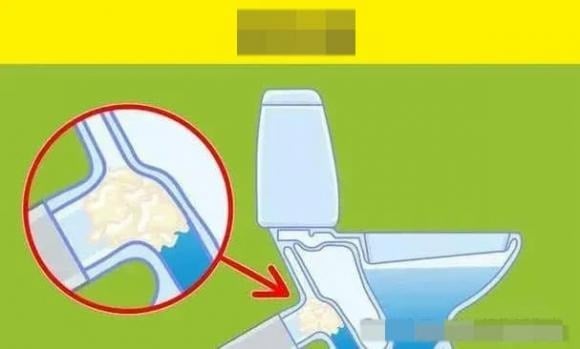
Not all papers are created equal when it comes to flushing.
Misconception 2: Toilet Paper Can Be Disposed of Carelessly
Although toilet paper is designed to be flushed, it doesn’t mean we can be reckless. Flushing excessive amounts of toilet paper at once or combining it with other non-biodegradable items can lead to toilet clogs. Older toilets or those with poor designs may have narrower drainage pipes, making it more challenging to flush toilet paper effectively.
Proper Usage Guidelines
Choose the Right Toilet Paper: Ensure you use toilet paper specifically designed for toilets and avoid using other types of paper like paper towels or facial tissues.
Use a Moderate Amount: Practice moderation in the amount of toilet paper used to prevent waste and avoid clogging issues.
Dispose of Other Papers Properly: Papers like wet wipes should be thrown into the trash instead of being flushed down the toilet.
Regular Check-ups and Maintenance: Periodically inspect your drainage system and toilet for any issues, and address them promptly. If needed, engage professional hydro-jetting services or seek expert maintenance.
The Link Between Toilet Paper and Bathroom Odors
Improper disposal of toilet paper can not only cause blockages but also lead to unpleasant odors in the bathroom. When toilet paper or other non-biodegradable items accumulate in the pipes, they create an environment for bacteria to thrive. Over time, these bacteria break down the organic matter, producing foul-smelling gases that pollute the bathroom air and affect the overall living environment.
Keeping Your Bathroom Fresh
Proper toilet paper usage is not just about avoiding clogs but also contributes to a cleaner and fresher bathroom. Ensure regular trash disposal if you choose not to flush toilet paper.
By understanding and implementing the right practices for toilet paper usage, along with regular maintenance of your drainage system, you can maintain a clean and comfortable bathroom. It starts with paying attention to these small details to protect your living environment and keep your bathroom fresh and healthy!
The Ultimate Solution to a Fresher Fridge: A Simple Trick to Keep Odors at Bay All Year Round
Introducing the dynamic duo of odor absorption and elimination – toilet paper and tea leaves. Imagine a world where your senses are captivated, not assaulted, by the aromas within your refrigerator. Our carefully crafted toilet paper is designed with a unique odor-absorbing capability, ensuring that unwanted scents are a thing of the past. But why stop there? Our tea leaves take odor elimination to the next level, offering a natural and effective solution to keep your fridge smelling fresh and inviting. Experience the difference today and say goodbye to unpleasant odors forever.

























